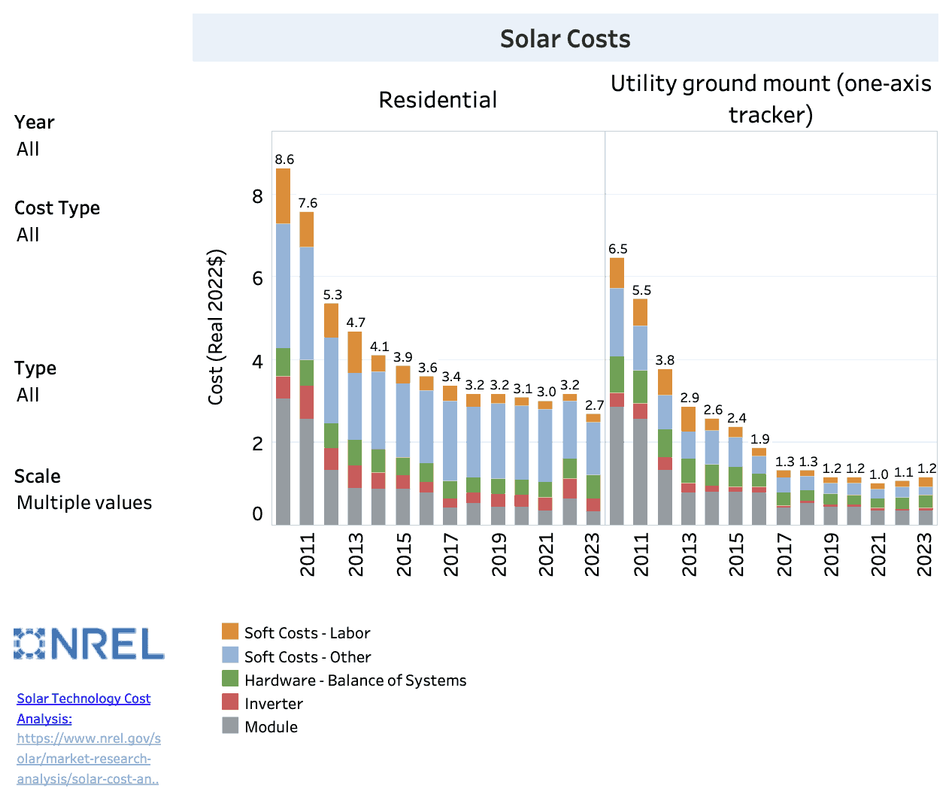Environment & Energy
Related: About this forumSFU study urges Canada to build solar power mega-projects
https://www.sfu.ca/sfunews/media/media-releases/2024/12/sfu-study-urges-canada-to-build-solar-power-mega-projects.htmlDecember 11, 2024
Canada should focus on building mass utility-scale solar mega-projects to kickstart its green energy transition, according to a new report from Simon Fraser University’s Clean Energy Research Group.
The recommendation comes from a new paper published in the journal Solar Compass which looks at the current state of solar power and compares the benefits of both mass-scale projects and smaller, decentralized approached like individual homes and commercial buildings installing their own solar panels.
“Solar has major advantages over wind, geothermal and nuclear power as a renewable energy source,” says Anil Hira, director of the Clean Energy Research Group (CERG) and a professor of political science at SFU. “The cost for installing solar panels is has dropped dramatically in the last decade, by an estimated 90 per cent, and is a vital part of energy plans in many countries, yet in Canada, that potential has barely been touched on. While solar power makes up approximately four per cent of global electricity generation, it only accounts for 0.5 per cent in Canada. Focusing on utility-scale solar projects could have a significant impact in parts of Canada, including British Columbia. Solar can help us to diversify our energy mix so we are not so reliant on hydro and reduces the intermittency problems with wind.”
The paper suggests that’s because much of the policy around solar power has focused on small-scale, decentralized residential and commercial generation. Those tend to be easy political wins for policy makers because it rewards individual and companies for investing in the technology for their own benefit and reduces land use headaches since panels are mostly being installed on existing buildings.
However, the authors argue that this approach doesn’t generate enough electricity to achieve a green transition, fragments the electricity system and raises equity concerns because not every area is suitable for solar power and wealthy homeowners and large companies are likely to be the only ones willing to make the long-term investments in panels and batteries. More plainly, costs for utility scale solar are approximately 64 per cent cheaper than residential and 50 per cent cheaper than commercial solar installations, on average.
…
bucolic_frolic
(47,909 posts)You'll be glad you did.
CoopersDad
(2,979 posts)Build production near demand and use space already in use.
Rooftops, carports, and other opportunities make more sense than vast uses of empty space.
OKIsItJustMe
(21,031 posts)However, as for it making more sense to install residential PV, rather than utility scale PV, due to “economies of scale” it is much faster and therefore cheaper (less than ½ the cost) to install Utility-scale PV.
https://www.nrel.gov/solar/market-research-analysis/solar-installed-system-cost.html

Once they are installed, panels on a farm can be easily maintained by a dedicated staff, rather than having more workers traveling from home to home.
If the goal is to bring as much solar on-line as possible as fast as possible, from a system view, it makes more sense to install utility scale PV.
There is a “hybrid" situation, where extremely large roofs (factory complexes, shopping centers, municipal buildings…) may have solar farms constructed on them. There, you have similar "economies of scale" with the reuse of space that you’re looking for.
Similarly, “farms” can be constructed over parking lots, highways, reservoirs, canals etc. although not as easily/cheaply as in “ground mount” farms.